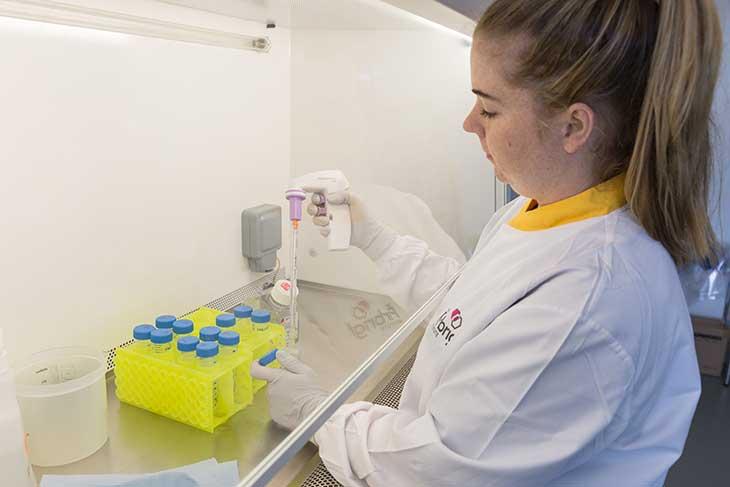Understanding, controlling and eradicating diseases that affect animals has never been more important in helping protect human health as well, said The Pirbright Institute on World Zoonoses Day on Wednesday 6 July 2016.
Over the last ten years experts estimate that three quarters of all emerging infectious diseases have originated in animals, claiming that the next global pandemic could originate in this way.
The Pirbright Institute is a national research centre that works to enhance the UK’s capability to contain control and eliminate virus diseases of livestock and those that can spread from animals to humans – or zoonotic diseases. It provides a unique combination of expertise, the highest level bio-containment laboratories and animal facilities, which include extensive reference virus collections and an Insectary which holds collections of arthropods that spread disease; such as ticks, mosquitoes and midges.
Zoonoses is an area of research the Institute is world renowned for and especially in regards to influenza. The flu virus is a major health threat to humans, and animals such as chickens and pigs; with some highly pathogenic strains causing pandemics, as happened with swine flu in 2009.
With so many different strains of flu virus; each requiring a unique vaccine, scientists around the world and at the Institute have been working to develop a universal vaccine that can protect against all strains of flu. Led by Dr Elma Tchilian, a team at Pirbright showed for the first time that a candidate universal vaccine called S-FLU is effective in pigs.
Dr Tchilian said: “Our research with S-FLU shows that it may be possible to produce a ‘universal vaccine’ for use in pigs and humans, which could be used in the event of a developing pandemic.”
Some of the Institute’s most recent pioneering research has been on genetic modification (GM), both of the vector; such as mosquitoes to stop the spread of diseases that affect humans and animals, and to develop modern preventative therapies such as vaccines.
Speaking at the recent Cheltenham Science Festival, Professor Luke Alphey, from the Institute and a world leading expert on the genetic modification of insects, explained how modifying the male of the Aedes mosquito species meant their offspring were born sterile; enabling a targeted approach to suppressing the insect population and with the potential to tackle a variety of insect borne diseases such as malaria or Zika.
Professor Alphey’s team is now exploring new techniques for controlling mosquito-spread viral infections and they have recently won a major grant from the Welcome Trust to investigate this approach further.
GM vaccines are considered the great hope in tackling zoonotic and other diseases – and even cancer. Dr Bryan Charleston, Interim Director and CEO of The Pirbright Institute, who also spoke at the Cheltenham Science Festival, explained that currently the development of new vaccines involves adapting field virus to cell culture; a process which can be time consuming and technically demanding; taking months or even years.
Dr Charleston said that making vaccines by design could enable scientists to respond more rapidly and effectively when new virus strains emerged; as vaccines could be developed much quicker. He argued that as nearly all GM vaccines are designed not to be able to grow or replicate, they also tend to be safer than traditional vaccines as well.
The 20th century was shaped by amazing breakthroughs in chemistry and physics. With such spectacular developments in GM technology, the 21st century is widely expected to be considered the century of bioscience - with The Pirbright institute clearly playing a vital role.
